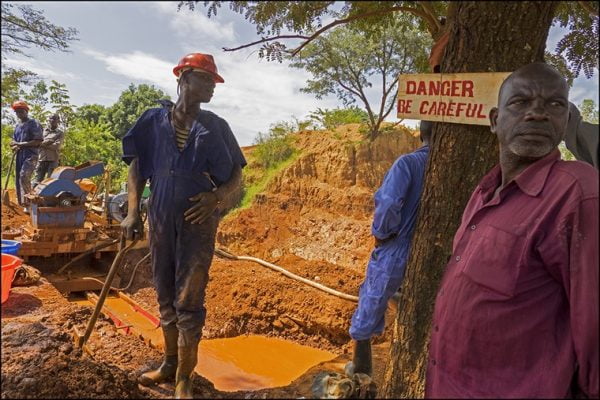Artisanal miners exposed to many dangers

Following the Battlefields national disaster, which claimed the lives of more than 50 artisanal miners, there has been growing calls that the sector needs regulation and support.
In Zimbabwe, gold is one of the country’s leading export earners and last year more than 33 tonnes of gold were produced, with the bulk, of more than 27 tonnes having been produced by small scale miners.
Globally, every year, more than 2,700 tonnes of gold is mined, and twenty per cent of that – over 500 tonnes annually – is produced by artisanal and small-scale miners.
But despite all the rich pickings, the story of artisanal mining is still characterised by harsh conditions, without the protection of industry regulations on pay, health or safety, to sate the national hunger for gold for foreign currency.
According to Global Environment Facility (GEF), an organisation formed to help tackle the world’s most pressing environmental problems, urgent action is needed to protect millions of men, women and children exposed to toxic levels of mercury through gold production every year.
GEF says the artisanal and small-scale gold mining (ASGM) sector is the single largest source of man-made mercury emissions, responsible for the release of as much as 1,000 tonnes of mercury to the atmosphere annually.
Globally, as many as 15 million people work in the ASGM sector globally – including 4,5 million women and over 600,000 children. In Zimbabwe, while the exact numbers might not be known, thousands of families rely on gold panning.
Zimbabwe is among the top 10 countries in the world that are still using mercury to process gold, importing over 350 tonnes of mercury annually. This is despite signing the Minamata Convention in Japan 2013.
“Introducing safe, mercury-free technologies into the ASGM sector will help provide a safe transition to job formality and dignified work for millions, while putting an end to the environmental impacts that can pave the way to sustainably produced gold,” GEF said this week, amid a global push for a $180 million investment to tackle the hidden cost of gold – exposure to toxic levels of mercury.
With many miners relying on toxic, mercury-based extraction methods, the ASGM sector is said to be the world’s single largest source of man-made mercury emissions, releasing as much as 1,000 tonnes of mercury (almost 40 per cent of the global total) into the atmosphere every year.
Studies indicate that mercury exposure in artisanal and small-scale miners is a major, largely neglected global health problem – putting miners and their communities at risk of impacts from permanent brain damage to seizures, vision and hearing loss, and delayed childhood development.
“Mercury emissions impact health and ecosystems, contaminating the food we eat, the water we drink and the air we breathe. This is a long-term problem we need to confront now. Joint initiatives like GEF GOLD demonstrate that when we unite for environmental action we can protect community health, provide livelihoods to those most in need, and save the planet.” Joyce Msuya, Acting Executive Director, UN Environment, reportedly said.
Promoting and facilitating access to non-mercury processing techniques for artisanal and small-scale miners is vital – not only to reduce mercury emissions, but to protect the health of vulnerable communities.


